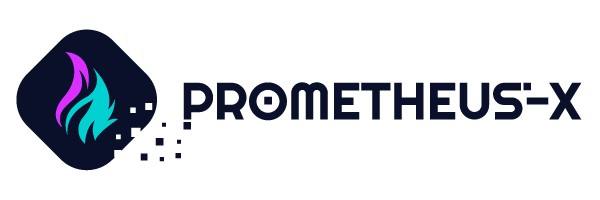Making decentralized AI Training Usable: A Prometheus-X Initiative
Data is a valuable resource that drives innovation and technological progress. However, unlike oil, the value of data increases with sharing, not consumption. This paradigm shift towards an open, accessible and shared digital ecosystem is at the heart of Prometheus-X’s mission. Prometheus-X’s groundbreaking initiatives include the development of a decentralized AI training protocol, a cornerstone that aims to revolutionize the way AI models are trained, while carefully protecting user privacy and promoting a sustainable, human-centric digital infrastructure.
What is decentralized AI training?
Decentralized AI training is an innovative approach to developing artificial intelligence models. It departs from traditional centralized methods by performing computations directly on data sources without ever exposing personally identifiable information. This method uses a decentralized protocol that allows AI model updates to be shared between different nodes (e.g. computers or servers) on a network, eliminating the need for a central authority to oversee the process.
The unmatched usefulness
The decentralized AI training model addresses a critical issue in today’s digital age: data privacy. With the growing awareness of data privacy, the ability to train AI models without compromising the confidentiality of personal data is invaluable. This method not only improves data privacy, but also opens up new avenues for AI development in various sectors, including education, healthcare and beyond, by utilizing data that was previously inaccessible due to privacy concerns.
By decentralizing the training process, this approach also democratizes AI development. It enables broader participation from data sources, including individual users and smaller companies, diversifying the data on which AI models are trained. This diversity can lead to more robust, accurate and unbiased AI models.
In addition to enhancing diversity and accuracy, decentralized learning values performing calculations at the data source—up to the individual level. This approach not only ensures better quality data due to its depth (historical), variety (transversal), and sensitivity, but also transforms privacy from an obstacle into an enabler. This shift allows for extracting more value from data, moving away from the centralized ‘big brother’ model and towards a more private and effective framework.
What sets decentralized AI training apart, particularly within the Prometheus X initiative, is its comprehensive framework for human-centric, sustainable and broad application in key areas such as education and workforce development.
Key functionalities
- Publishing AI computation plans AI providers can publish a detailed computation plan in a catalog describing the initialized AI model, target data, and how this data will be used.
- Anonymous execution of calculations An execution plan derived from the computation plan describes the participation of data aggregators responsible for anonymized computation to ensure privacy.
- Trust distribution Each data aggregator can be run by a different organization, making the protocol governance truly decentralized.
- Consent-based participation Users voluntarily agree to participate, after which the execution plan is implemented, resulting in the creation of a trained AI model.
- Reputation-based node selection Nodes can be selected or excluded based on a reputation score, ensuring reliability and trustworthiness in the computation process.
- Evaluation of model accuracy and trustworthiness The effectiveness and reliability of the trained AI model can be rigorously evaluated.
Decentralized AI training is a critical building block in this vision, offering a scalable, privacy-preserving, and efficient method to harness the power of data for societal advancement.
